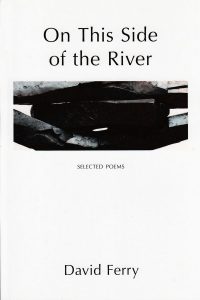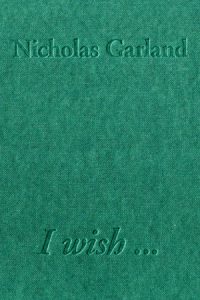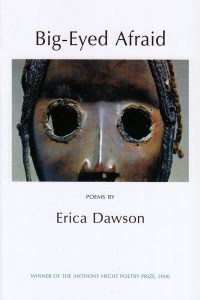Shell Island
£7.95
Shell Island, Ian Parks's second full collection of poems, extends and develops concerns already present in his previous work: those of love, loss, and the relationship that exsists between the individual and society. Themes of encounter – particularly with the miraculous – and of the resonating quality of history are juxtaposed with a series of intense love lyrics.
The main preoccupation of the collection, however, is with the transitory nature of human experience and how that experience informs our perception of "the rule of love and politics"
Shell Island
"He brings national history, the human life-span and the seasons together in a series of excellent poems." – Cal Clothier, Artscene
“Reading a poem by Ian Parks is like hearing your name uttered in a public place: you hear it regardless of the background noise." – Peter Dale
"One of the bright new hopes of British poetry." – John Osborne, Bete Noire
"He is a fine lyric poet whose work leaves that of many of his contemporaries – overwritten and overbearing – in its slipstream." – Ian Pople, Prop
“Ian Parks is the rarest of contemporary poets – a skilled versifier, respectful of his craft, and buoyed rather than weighed down by its tradition. These poems demonstrate a remarkable aural sensitivity and control; Parks is finely attuned to the landscape’s variance, its measured pulse, its echo and persisting memory. Here are sagacious, elegiac verses, at once visceral and tender, local and possessive of an organic unity: this is an impressive collection from an important poet.” – Ben Ramm
"Parks has an acute and intense sense of place which he manipulates for additional dimensions in his descriptions of love, loss, history and desire … He manages to tackle the tricky area of ‘public’ poetry with an unaffected sense of ownership, enabling him to examine difficult issues in a fresh way." – Anna Robinson, Poetry London
"His poems are not simply preoccupied with romantic love – its provisional and shifting nature – but also finely register the interplay between the private and the public realms. His mastery of an attractive, accessible lyric style makes them a pleasure to read." – Jules Smith
"Ian Parks is a master of the elegiac cadence. These are poems caught between tides – ghosted with slippages, departures, possibilities. And at their shifting centre, loss and love." – Pauline Stainer
"Ian Parks’s poems are achingly tender while being devoid of sentimentality. Their evocative simplicity is stunning … It is heartening to read such an exquisite first collection in a time when poetry is falling victim to a fashion for slick glibness." – Angela Topping, Orbis
Reviews of Shell Island
Acumen, January 2007
"Parks writes out of that English tradition which values lucidity and form; his heroes, I would guess, probably include Thomas Hardy and perhaps Edward Thomas and Robert Frost. Not that his poetry is merely derivative or … dated. Themes like love and loss, metaphors like the sea and snow; metrically sophisticated quatrains and poems which progress with subtlety across line and stanza endings; such things characterise a poetry which is, in the best sense, ‘traditional’. It is a poetry of literal and metaphorical hauntings, of fugitive experiences and landscapes. Parks is, particularly, a master of the brief narrative, short stories or novellas stripped of all but the essentials. The forty brief lines of ‘A Valley Affair’ say more than many a novel and even have time to reflect wryly on their own ‘telling’. There’s a care for precision, a refusal of easy rhetoric, that gives to much of Parks’s work a tellingly powerful reticence which it is easy to admire. – Glyn Pursglove
The North, No. 39
"[Parks’s] first book … was published some eight years ago; in addition to the lyric gifts abundant in that book, [he] has become, … like Auden, an accomplished story-teller in verse. These [poems] often have a sprightly, archetypal feel to them: the wild west girl who moves into the isolated community; the roué guest who more than outstays his welcome; the comrade who lives through all the vicissitudes of the civil war. [Parks’s] deft craftsmanship is contained in a cadenced iambic pulse and a warm, precise style." – Ian Pople
The girl is tall
and never thinks of food
unless he brings her
oysters from the bay
arranged with lemon
on an oval plate.
It is their only
luxury. At night
an oil-lamp swings
above the bed;
a tarnished mirror glints
across the hall;
their furniture is sanded
to a cool, transparent sheen.
Incomers, they begin
to feel at home.
Their new republic
is a state of mind
in which the world
of commerce lays no claim.
It has its laws,
its languages – a grove
of olives where
the freed bird sings.
The shells of all
the oceans gather here:
a cache of pink
exotic coils banked up
against the winter tide.
I ask if it’s still possible,
this pool of dreams
and solitudes
in which the driftwood
floats at rest
and lives retract,
becoming simplified.
Across the bay
the new refinery
lights up their hemisphere;
a still white centre
pulses and dilates.
Complex, entire,
it holds their studied
gaze: as alien, cold
and insecure
as the force it draws
its power from,
the city it anticipates.
The Waywiser Press
A Last Love Poem
I was thinking how the daylight disappears,
how one thing blends into another thing
as over river, rooftops, silent park
time slips away without our noticing:
the wave collapses and a cold wind veers
through all the public places where we loved.
That’s what it feels like these years on:
you were quite unexpected, and it seems
I’ve used up all the images I know –
midnight stations, coastal roads,
red wine, high windows, lace and sudden snow.
Don’t be surprised if language fails me now.
I turn to face the sunlight. Let it go.
The Waywiser Press
Excerpts
Shell Island
The girl is tall
and never thinks of food
unless he brings her
oysters from the bay
arranged with lemon
on an oval plate.
It is their only
luxury. At night
an oil-lamp swings
above the bed;
a tarnished mirror glints
across the hall;
their furniture is sanded
to a cool, transparent sheen.
Incomers, they begin
to feel at home.
Their new republic
is a state of mind
in which the world
of commerce lays no claim.
It has its laws,
its languages – a grove
of olives where
the freed bird sings.
The shells of all
the oceans gather here:
a cache of pink
exotic coils banked up
against the winter tide.
I ask if it’s still possible,
this pool of dreams
and solitudes
in which the driftwood
floats at rest
and lives retract,
becoming simplified.
Across the bay
the new refinery
lights up their hemisphere;
a still white centre
pulses and dilates.
Complex, entire,
it holds their studied
gaze: as alien, cold
and insecure
as the force it draws
its power from,
the city it anticipates.
The Waywiser Press
A Last Love Poem
I was thinking how the daylight disappears,
how one thing blends into another thing
as over river, rooftops, silent park
time slips away without our noticing:
the wave collapses and a cold wind veers
through all the public places where we loved.
That’s what it feels like these years on:
you were quite unexpected, and it seems
I’ve used up all the images I know –
midnight stations, coastal roads,
red wine, high windows, lace and sudden snow.
Don’t be surprised if language fails me now.
I turn to face the sunlight. Let it go.
The Waywiser Press





